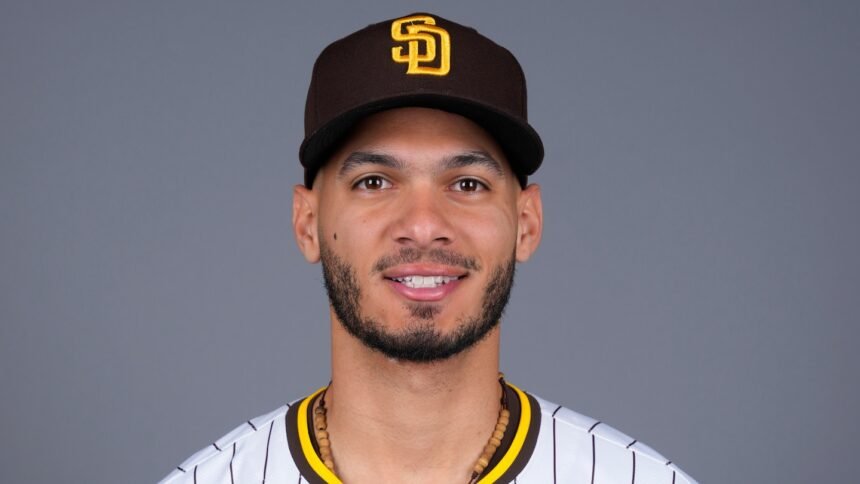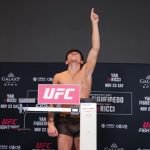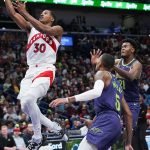The other four players — Oakland Athletics pitcher Michael Kelly, Philadelphia Phillies minor league infielder José Rodríguez, Padres minor league pitcher Jay Groome and Arizona Diamondbacks minor league pitcher Andrew Saalfrank — were declared ineligible for one year after an investigation revealed they placed bets on MLB games, too.
“The strict enforcement of Major League Baseball’s rules and policies governing gambling conduct is a critical component of upholding our most important priority: protecting the integrity of our games for the fans. The long-standing prohibition against betting on Major League Baseball games by those in the sport has been a bedrock principle for over a century,” Commissioner Rob Manfred said in a statement.
“We have been clear that the privilege of playing in baseball comes with a responsibility to refrain from engaging in certain types of behavior that are legal for other people. Since the Supreme Court decision opened the door to legalized sports betting, we have worked with licensed sports betting operators and other third parties to put ourselves in a better position from an integrity perspective through the transparency that a regulated sports betting system can provide. MLB will continue to invest heavily in integrity monitoring, educational programming and awareness initiatives with the goal of ensuring strict adherence to this fundamental rule of our game.”
MLB, which was quick to allow its teams and national broadcasters to run betting odds and ads for sportsbooks during games once the Supreme Court paved the way for legal sports betting in 2018, insisted in a news release Tuesday that none of the players involved influenced the outcomes of games on which they bet and that “the betting data does not suggest that any outcomes in the baseball games on which they placed bets were compromised, influenced, or manipulated in any way.”
The news release explained that in March, a legal sports betting operation flagged past betting from minor and major league players for MLB, which obtained the data about their bets. MLB has long been clear about its stance on sports betting: Players can place bets on other sports as long as they do so through legal betting operations, but they cannot, under any circumstances, bet on baseball.
The MLB rule book states, “Any player, umpire, or Club or League official or employee, who shall bet any sum whatsoever upon any baseball game in connection with which the bettor has no duty to perform, shall be declared ineligible for one year.” Meanwhile, “any player, umpire, or Club or League official or employee, who shall bet any sum whatsoever upon any baseball game in connection with which the bettor has a duty to perform, shall be declared permanently ineligible.”
Marcano last played in the major leagues in July, when an ACL injury ended his season with the Pirates. In total, MLB found he bet more than $150,000 on baseball beginning in October 2022 and continuing through the summer of 2023. It was during that summer when he was on the injured list, but still receiving treatment at PNC Park, that he placed 25 bets on the Pirates. He did not appear in any of those games.
The other four players did not bet on teams for which they were rostered at the time, though some did bet on games played by their affiliated major league organization while in the minors. When Kelly was a minor leaguer in the Houston Astros’ system in 2021, he placed bets on game outcomes, how many runs the major league team would score and how many strikeouts pitchers would have, according to MLB. Those bets totaled $99.22. Kelly, who has since appeared in 46 major league games with the Phillies, the Cleveland Guardians and the Athletics, including 28 this year for Oakland, was not involved in any of the games on which he bet, MLB said.
The same was true of Saalfrank, a lefty who pitched in three World Series games for the Diamondbacks as a rookie in 2023. MLB’s investigation found Saalfrank bet on MLB games 28 times while in the lower levels of Arizona’s minor league system. Four of those games involved the Diamondbacks, per MLB. In all, he wagered about $450 on MLB-related bets.
Rodríguez, who appeared in one game with the Chicago White Sox before being acquired by the Phillies before this season, placed seven bets on the White Sox while a member of their Class AA team in 2022. In total, he bet approximately $725 over 28 wagers on MLB games.
Groome has yet to make his major league debut but was found to have bet on Boston Red Sox games while he was a member of their high Class A affiliate in 2020 and 2021. According to MLB’s investigation, he bet $453.74 on 30 MLB-related wagers.
The suspensions come as MLB continues to investigate former Los Angeles Angels infielder David Fletcher after his name surfaced in connection with Mathew Bowyer, the alleged bookie with whom Ippei Mizuhara, the former interpreter for Los Angeles Dodgers star Shohei Ohtani, purportedly accumulated millions in debt that he tried to pay with Ohtani’s money. Mizuhara appeared in a Los Angeles courtroom Tuesday and pleaded guilty to bank and tax fraud charges that could carry a maximum sentence of more than 30 years in prison. Afterward, MLB issued a statement clearing Ohtani of any malpractice.
“Based on the thoroughness of the federal investigation that was made public, the information MLB collected, and the criminal proceeding being resolved without being contested, MLB considers Shohei Ohtani a victim of fraud and this matter has been closed,” it said in a statement.
MLB does not typically announce investigations when they open, so it is not clear whether other gambling investigations are also underway.
But that Marcano’s name will sit alongside Rose’s in the list of those banned for betting on baseball serves as a reminder of the gravity of this offense in MLB’s eyes and the complicated place Rose occupies in baseball history. Rose had long since become MLB’s all-time hits leader by the time he was accused of betting on 52 of his team’s games while managing the 1987 Cincinnati Reds.
Rose, who would have had control over in-game decisions that could have helped him win bets if he had chosen to make them, denied those allegations. But he eventually accepted a lifetime ban in 1989 in exchange for then-commissioner Bart Giamatti not issuing any formal findings about the extent of his gambling activities.
Because he was declared permanently ineligible, Rose has not been inducted to the Hall of Fame, joining some of the tainted stars of the steroid era as controversial exclusions. That exclusion became a topic of more frequent discussion in recent years as MLB embraced sports betting.
Now, 35 years later, MLB has issued another lifetime ban — one that, because Marcano has 88 hits to his name instead of 4,256, probably will not feel as historically significant. But it is worth noting that the punishment handed down Tuesday was effectively unprecedented. The 1919 Chicago “Black Sox” were the previous group of players punished, en masse, for gambling-related violations. Those players, of course, were accused of throwing the World Series. For now, MLB says, it has no evidence of any such manipulation of its games.










